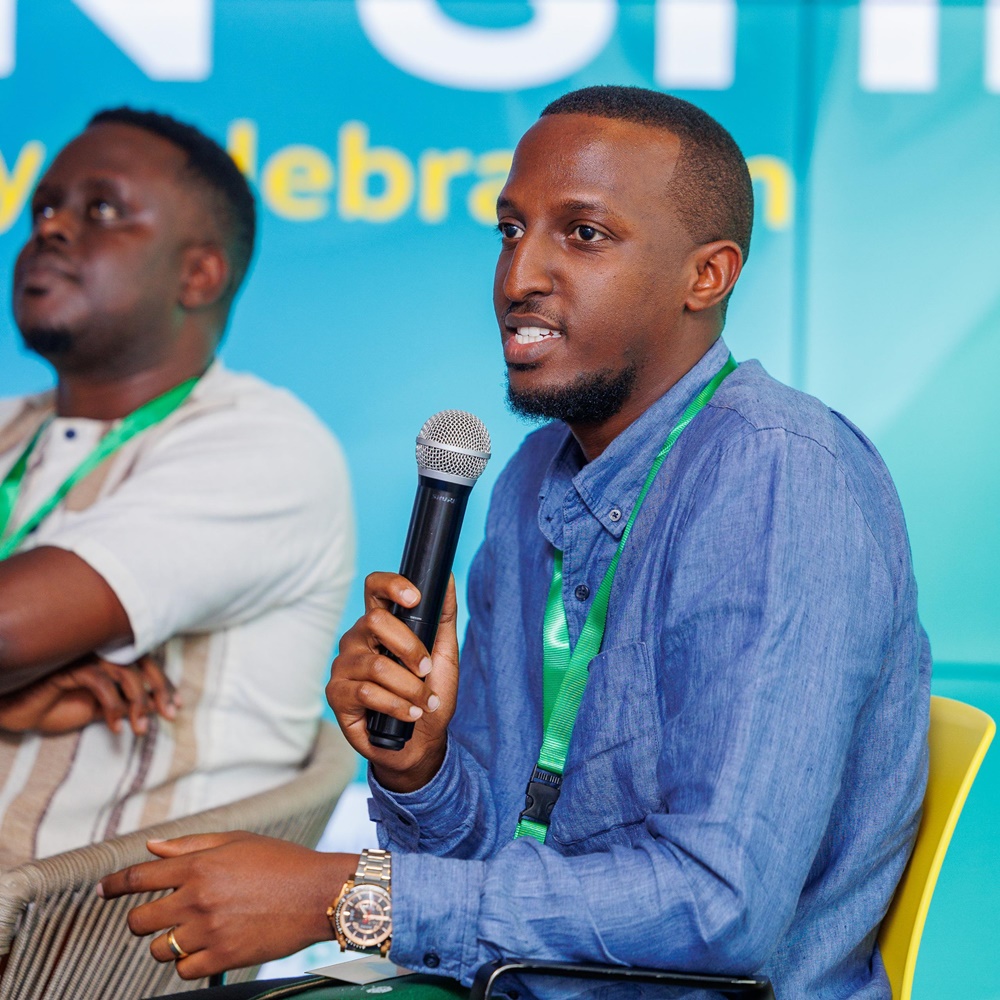In celebration of World Environment Day, the Rwanda Young Water Professional (RYWP) organized a dynamic knowledge-sharing event that brought together youth innovators, environmental professionals, and policymakers. The event, themed “Youth Leading the Green Shift,” highlighted the pivotal role young people play in shaping sustainable environmental policies, driving innovation, and championing grassroots action across Rwanda.
Held as part of RYWP’s monthly knowledge-sharing series, the event provided a collaborative platform for emerging leaders to exchange ideas, share success stories, and forge meaningful partnerships aimed at building a resilient and climate-smart Rwanda.

“Today was not just another event,” said Benigne Ishimwe Mugwaneza, RYWP Coordinator. “It was a space for young people to speak up, and more importantly, to share the great work they are doing and the impact they are making in their communities.”
She added, “We recognized that we are doing a lot, but we must do it together,” she said. “Bringing together voices from policy, innovation, advocacy, and entrepreneurship allows us to build momentum and create even greater impact.”
Mugwaneza emphasized that young professionals are already making waves in the environmental space, from policy advocacy to grassroots innovation.
She noted that collaboration among stakeholders—from policymakers to entrepreneurs—is key to scaling impact.
Green Entrepreneurs in Focus

Among the panelists was Andrew Kabera, Green Cities and FCS Associate at the Global Green Growth Institute (GGGI) Rwanda. Kabera highlighted the Rwanda Green Entrepreneurs Network, an initiative launched by GGGI to support aspiring green entrepreneurs through access to training, mentorship, finance, and professional networks.
“Youth are not just the future—they are also the present,” Kabera said. “But for them to be effective, they must understand today’s challenges and learn how to contribute meaningfully.”
Kabera acknowledged the growing interest among youth in sustainability but pointed out several hurdles they face. Key among these are limited technical knowledge, especially in rural areas, restricted access to digital tools, and a lack of capital and financial management skills.
“Many youth have great ideas, but without the skills to scale or manage finances effectively, those ideas often stall at the startup stage,” he noted.
Kabera called for integrated support systems that go beyond grants. He advocated for policies that provide consistent youth engagement, improve access to investment-ready financing, and foster an inclusive policy environment that values youth perspectives.
Youth Voices in Policy Making

Paul Chukwuma, Environmental and Policy Officer at The Green Protector, underscored Rwanda’s progress in integrating youth into national and global policy discussions.
“Rwanda is ahead of many African countries in terms of youth inclusion,” said Chukwuma. “But there is room for more structure—like a national youth council on environmental policy that can centralize and amplify youth voices.”
He cited the ongoing revision of Rwanda’s Nationally Determined Contributions (NDCs) as a positive example, where youth consultations were directly held by the government. Chukwuma emphasized that young people must leverage existing platforms—both formally and informally—to make their voices heard.
“Youth can influence legislation not just by being at the table, but also through digital advocacy, group representation, and consistent engagement with policy outcomes,” he explained.
Plante Josue Niyomugenga, the Founder and Managing Director of AFLIMBA, a Rwandan creative space empowering rural artisans, draws deeply from personal experience to drive his mission.
“I grew up in a rural area full of artisans, including my mother, who made little or no money from their craft,” he shared. It wasn’t until university that Niyomugenga recognized the untapped potential of rural craftsmanship. “I wanted to go back and change the narrative,” he added, a vision that led to the birth of AFLIMBA in 2018.
By 2022, his focus had expanded toward sustainability, particularly around denim. “Jeans are among the least eco-friendly fabrics, yet they’re a global staple. We decided to elongate their life while uplifting rural artisans,” he explained.
On challenges faced by young climate innovators, Niyomugenga offers a nuanced view. “It’s not just about lack of funding. Often, starting with too much money leads to waste. Limited resources push creativity.”
He emphasized that entrepreneurs must balance product, customer, and purpose. “People don’t buy just because it’s green—they buy value. And many of us are figuring it out as we go. We need guidance, not just funding,” he concluded.
A Path Forward: Empowerment through Inclusion
The event’s discussions revealed a consensus: youth are not only passionate but ready to lead Rwanda’s environmental transformation. However, their efforts must be supported with the right tools, training, and access to opportunity.
As the world looks toward a greener future, Rwanda’s young professionals are positioning themselves not as passive beneficiaries, but as proactive architects of sustainable development. Events like “Youth Leading the Green Shift” underscore a national momentum that, if sustained, could make Rwanda a continental model for youth-led climate action.








